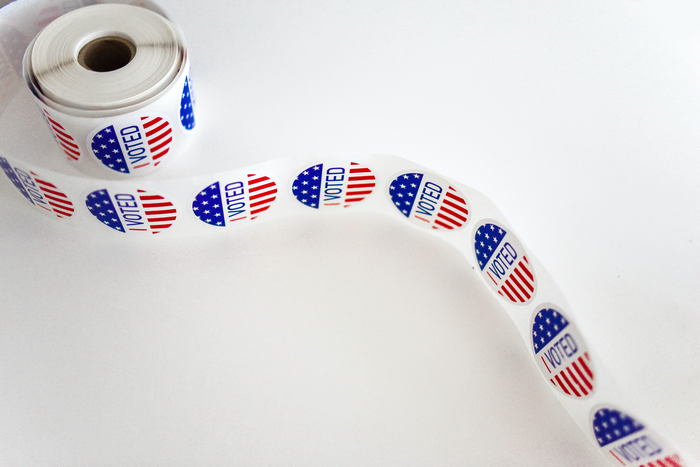In an experimental study, participants’ first impressions of photos of strangers’ faces were strongly influenced by disclosure of the stranger’s political partisanship. Brittany Cassidy of the University of North Carolina at Greensboro, U.S., and colleagues present these findings in the open-access journal PLOS ONE on November 9, 2022.

Credit: Element5 Digital, Unsplash, CC0 (https://creativecommons.org/publicdomain/zero/1.0/)
In an experimental study, participants’ first impressions of photos of strangers’ faces were strongly influenced by disclosure of the stranger’s political partisanship. Brittany Cassidy of the University of North Carolina at Greensboro, U.S., and colleagues present these findings in the open-access journal PLOS ONE on November 9, 2022.
Previous research suggests that levels of ideological polarization are rising in the U.S., leading to tensions between people of differing political preferences. Such polarization could potentially be reflected in basic aspects of perception, such as first impressions of other people’s faces. However, while a growing number of studies have explored links between face impressions and interpersonal behavior, few have examined links between face impressions and political partisanship.
To explore the how political partisanship might influence face impressions, Cassidy and colleagues conducted two experiments involving 275 undergraduate college students.
In the first experiment, participants were presented with pairs of photos of two unfamiliar people’s faces and asked to select which was more likable and competent. In some cases, photos were labeled according to the subjects’ true political partisanship—Republican or Democratic. In other cases, these labels were inaccurate or omitted, but the researchers were aware of all subjects’ true political ideologies.
Results from the first experiment showed that participants’ first impressions of the faces were more strongly affected by disclosed political partisanship—even if it was inaccurate—than non-disclosed partisanship.
In the second experiment, participants evaluated likeability of faces before and after political partisanship was disclosed. The researchers found that participants changed their impressions post-disclosure based on their own political partisanship.
In both experiments, the researchers also evaluated each participant’s level of perceived partisan threat; they found that the effects of disclosure on face impressions were particularly pronounced for people with stronger perceptions of partisan threat.
These results suggest that polarization based on political partisanship can appear in basic aspects of perception. The researchers suggest their findings—and future research in this area—could help inform efforts to foster more equitable interactions between people of differing political ideologies.
#####
In your coverage please use this URL to provide access to the freely available article in PLOS ONE: https://journals.plos.org/plosone/article?id=10.1371/journal.pone.0276400
Citation: Cassidy BS, Hughes C, Krendl AC (2022) Disclosing political partisanship polarizes first impressions of faces. PLoS ONE 17(11): e0276400. https://doi.org/10.1371/journal.pone.0276400
Author Countries: USA, Canada
Funding: This research was supported by grant numbers KL2TR002530 and UL1TR002529 (A. Shekhar, PI) from the National Institutes of Health, National Center for Advancing Translational Sciences (https://ncats.nih.gov/), Clinical and Translational Sciences Award to A.C.K. The authors declare no conflicts of interest. The funders had no role in study design, data collection and analysis, decision to publish, or preparation of the manuscript.
Journal
PLoS ONE
DOI
10.1371/journal.pone.0276400
Method of Research
Experimental study
Subject of Research
People
Article Title
Disclosing political partisanship polarizes first impressions of faces
Article Publication Date
9-Nov-2022
COI Statement
The authors have declared that no competing interests exist.




